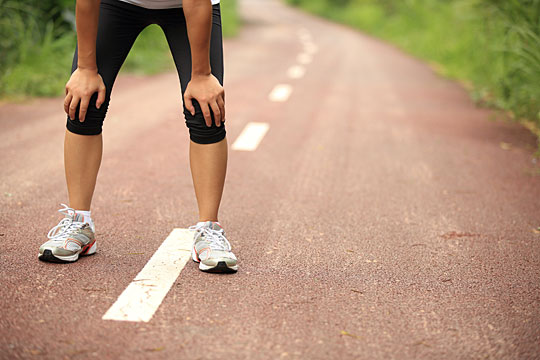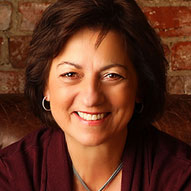
Fatigue comes in many shapes and sizes. Some people get through their day on autopilot, only to crash from exhaustion in the early evening. Others have energy, but it fluctuates widely throughout the day. Some struggle to drag their tired body out of bed, but seem to be okay once they get moving. And still others are deeply exhausted throughout their entire day.
So what gives? Why are so many people so tired? And is there anything they can do to have a little more energy? The answer is that in most cases, yes, better energy is possible, however it takes a little understanding of the concept of energy, or Qi (pronounced chee), from the standpoint of Chinese medicine.
First of all, Chinese medicine is all about energy—not the mood ring and healing crystals kind of energy, but the very real cellular energy that our bodies need to function. In the world of Chinese medicine, two things are necessary to be healthy: you need to have enough energy to run all of your body’s “programs”, and that energy needs to move throughout your body freely. So, when you are chronically tired, it’s because your energy is depleted; either you don’t have enough to fuel all your body’s functions, or that energy is trapped and not available for use.
Some of the functions that require energy include the transformation of food into nutrients through digestion, protection in the form of immunity, the ability to move, internal warmth, growth, and the capacity to heal. If your energy is low, not only will you feel tired, but most likely one or more of these functions will be performing poorly, too.
So how can you use Chinese medicine to improve your energy levels and fight fatigue? Here are seven secrets that you may find surprising:
1. Take Care of your digestion
Your energy is made from the food you eat, and while eating a healthy and balanced diet is important, your digestion is just as crucial. Simply put, if you can’t digest well and convert what you eat into more energy and nutrients, all the healthy food in the world won’t help you.
In Chinese theory, your digestion is similar to a nutritious pot of soup simmering over a low heat. What you eat is adding to that soup and can affect how well it continues to cook. Very cold foods and drinks, as well as lots of fiber-heavy raw fruits and vegetables slow your digestive fire down and take a lot of energy to rekindle it.
You know that your digestion is not up to par if you have symptoms such as heartburn, gas, bloating, stomachaches, nausea, constipation, or loose stools. In addition, if you feel tired after meals, it’s because your digestion is struggling and using up your Qi.
2. And yes, what you eat really matters
It’s true that you are what you eat, and you can’t fuel your body on garbage. Look for real food, not stuff that’s been chemically altered to live for months on the grocery store shelves. Start with lots of produce; then add some whole grains and lean protein. Cook most of your meals yourself and avoid packaged and processed foods as much as possible. Remember the food that you eat is the foundation on which your energy is built—start with good materials.
3. Pay attention to your lungs
Your energy also comes from the air you breathe. If you struggle from asthma, allergies, shortness of breath, or have been a long-term smoker, your lungs are not working to full capacity. Strategies that can improve the health of your lungs, and ultimately the quality of your energy include, sitting and standing up straight to open up your ribcage, engaging in deep breathing (try inhaling to a count of 4, holding for 7, and exhaling for 8), and get some exercise. A little aerobic exercise can open up your chest and diaphragm and put your lungs through their paces.
4. Understand the nature of healing
It takes energy to heal, and if you’ve been sick or injured, it’s natural to feel fatigued. That’s because your body is using much of your energy to repair itself. The good news is that you can help things along by taking it easy and getting plenty of rest and sleep. Your body heals and rejuvenates while you’re resting, so don’t skimp on the R and R. In addition, it’s human nature to want to test things out to see how well you’ve been healing, but give your body the time it needs to do its job. Overdoing it too early will only set you back. A good rule of thumb is to wait until you’re no longer feeling fatigued or in pain to get back to your normal routine.
5. Stay warm
Wait…really? What does keeping warm have to do with your energy? Remember that one of the jobs of your Qi is to keep you warm. If you are one of those people who are constantly cold and fighting to keep warm, you’re using up energy. Give your body a helping hand by wearing an extra layer and bundling up in the winter. Using your energy to stay warm is just taking it away from somewhere else.
6. Deal with pain
As a practitioner of Chinese medicine, I know that this is often easier said than done. However, the nature of pain is that it’s considered to be a blockage of your energy. If you have ever been in serious pain, you know that over time it just wipes you out. In the simplest terms, your energy is blocked and not available for other uses, so you feel exhausted. The World Health Organization and the National Institutes of Health have determined that acupuncture is effective, safe and economic as a means to alleviate pain.
7. Finally, check your emotional health
Stress, anxiety, and depression affect every aspect of your health and easily deplete your energy. Emotional turmoil stagnates your energy, upsets your digestion, disturbs your sleep, and slows down your immunity. If you’re feeling exhausted and struggle with motivation, take a look at your emotional well-being. Could it use some help?
When it comes to your energy, think of it in terms of supply and demand. You need to have enough to run all of your body’s functions. You can keep your energy engine running optimally with a little help from Chinese medicine.

Cindy Chamberlain is an acupuncturist in Overland Park, KS and the founder of Eastern Healing Solutions, LLC. She is licensed in Kansas and Missouri and has been practicing traditional Chinese medicine since 1996.
